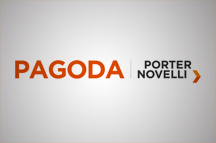 Viewers of the Andrew Marr show will have seen the First Minister defiantly keep alive her hopes of calling a second referendum before the 2021 Scottish elections saying she will make her decision – based on her assessment of the Brexit outcome – in the autumn.
Viewers of the Andrew Marr show will have seen the First Minister defiantly keep alive her hopes of calling a second referendum before the 2021 Scottish elections saying she will make her decision – based on her assessment of the Brexit outcome – in the autumn.
The most recent YouGov opinion poll (conducted between January 12 and 16) gives little succour to the First Minister’s hopes. It reveals that not only has support for independence fallen to 43%, with the No vote rising to 57%, but those who thought that a further poll should take place in the next five years has fallen to 36%.
And, more worryingly for the First Minister, the poll shows that at the 2021 Holyrood election, the SNP could lose 10 seats; even with a projected 10 seats for the Greens that total falls 2 votes short of a pro-independence majority.
The news for Labour is not much better. Support for Labour has fallen by 2% in both the constituency and regional list. And its new leader, Richard Leonard, has a negative rating of 15 when respondents were asked if he was doing well or badly. To be fair he was elected in early December and most folk pay little attention to politics over the festive period so he has little time to make his mark.
But Leonard’s perceived alignment with Jeremy Corbyn has also proven to be a negative factor. Corbyn has an approval rating of minus 3 compared to plus 20 just three months ago. Factors which may have affected Leonard and Labour’s popularity include Corbyn’s indecision on how the UK should leave the EU; Labour’s position on tax increases; the party’s ongoing promotion of federalism at a time when the electorate want to talk about services; and his loyalty to London giving the impression that Labour no longer has a distinctive Scottish voice and is back to being a “branch office”.
The Scottish Conservatives have marginally increased their support at Holyrood in the constituency and list vote. They may have benefitted from their position of not wishing to increase income tax, while all their opponents wish to agree some level of increase. The taxation issue will continue to be a dividing line right up to 2021. Depending on the nature of Brexit and its effect on the Scottish Conservative Party, tax increases may well be at the top of the political agenda when the election rolls around. And if the Conservatives remain the only party wedded to leaving income tax levels where they are, they should benefit.
So what will 2018 bring? Ongoing criticism of the SNP’s failures in education, the NHS and Police Scotland in particular; a continued growth in support for the Scottish Conservatives and the ongoing marginalisation of Labour, at least in Scotland. Oh and no second Scottish referendum.














